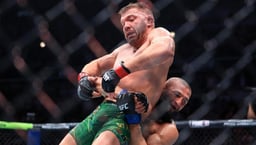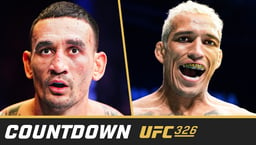
Issue 035
March 2008
The International Fight League (IFL) has its detractors. If it's not the team format, it's the four minute rounds. Every internet analyst has an opinion and while some opinions are worth more than others, for the most part people seem to be missing the point. Granted the IFL isn't perfect, but it's different strokes for different folks.
While PRIDE was still around there was the debate between the majestic, pacific-based behemoth and the down-to-earth, rough-edged Ultimate Fighting Championships (UFC). Mixed martial arts (MMA) fans usually had a preference between the two, most for legitimate reasons, but some chose because it made them look more discerning, like they knew about the sport.
That clearly wasn't the best way to differentiate between two organisations but it's exactly that kind of snobbery that's causing MMA fans to shun the IFL. For those unfamiliar, the IFL is a US-based MMA organisation that uses a team based system. Twelve matches make up a season and each match consists of two teams squaring off with one fighter per weight class. That means five fights every match and the team that gets the most wins gets the 'W'. To add further intrigue each team has an aggressive moniker and an MMA legend as a coach.
If you're wondering what the international part is about, a handful of teams are based outside the US. This year British MMA legend Ian Freeman will field a UK team under the name the Bulldogs. Although the 2008 season is due to drop the geographical associations of the teams (which was present in the league's first two seasons) the premise will be the same.
Back in Issue 31 of this magazine Pat Miletich, head coach of the IFL's Quad Cities Silverbacks, expressed his concern over the term mixed martial arts, explaining that he felt it didn't match the American mentality. By way of an alternative he came up with the terrible 'sport fighting'. While Miletich's version might appeal to the blue collar American working class, it wouldn't have helped the sport recruit sponsors.
But the decorated former fighter and coach raised a valid point. So much of today's speculation about MMA is about where the sport will grow next. While the UFC has a cobra choke on media conscious, cable-owning 18-30 year olds, there's still a lot of the American and international population up for grabs. It's these untouched realms where the IFL can prosper.
Most MMA addicts don't like the IFL. The organisation highlights and trims boring rounds from their pre-recorded events. When they show a round in full they're likely to skim past extended periods of groundwork fearing people might switch over. Many see their fighters as not being top calibre, with few troubling the various internet world rankings. These things make the MMA addict unhappy.
On the other side of the coin casual fans are only interested in the UFC and have no time for any diamond-in-the-rough organisations. With those two segments of MMA's fan base on the verge of breaking up with the IFL, who's going to be its mainstay audience?
Here's where the IFL holds an edge on it's competitors. Just like the prophet Miletich mused, MMA in it's current form doesn't attract the average American. They're familiar with boxing and American football and all the talk of passing the guard and keylocks is confusing. Unlike in the UK, where people are usually loyal to one sport and team, an American sports fan tends to follow many teams and sports loosely. With all that on his plate John Everyman doesn't have time to pick up on the intricacies of MMA, so why would he want to watch them on TV?
The more recognisable and familiar, the more appealing. The IFL's format plays with that familiarity. The ring looks the same as a boxing ring. The IFL's logo is reminiscent of the NFL or NHL.
The round cutting means not having to sit through uninspiring lay and pray. Four minute rounds mean more digestible servings of action. The team format is comfortable, and makes it easy to choose who to root for. Each event ends in one team's win or loss, forcing an emotion about the outcome one way or the other. It's made for the average American sports fan.
There's always going to be people ripping apart MMA cards and organisations. Barely a UFC show goes by where someone's not complaining about something. The IFL does have it's downfalls, but when much of the nitpicking is placed in context it becomes irrelevant. Just like some fans reasons for preferring PRIDE over UFC or vice versa were snobbery, it's unfair to compare the IFL to a hardcore fan's desires. It's aimed at a different market.
...









